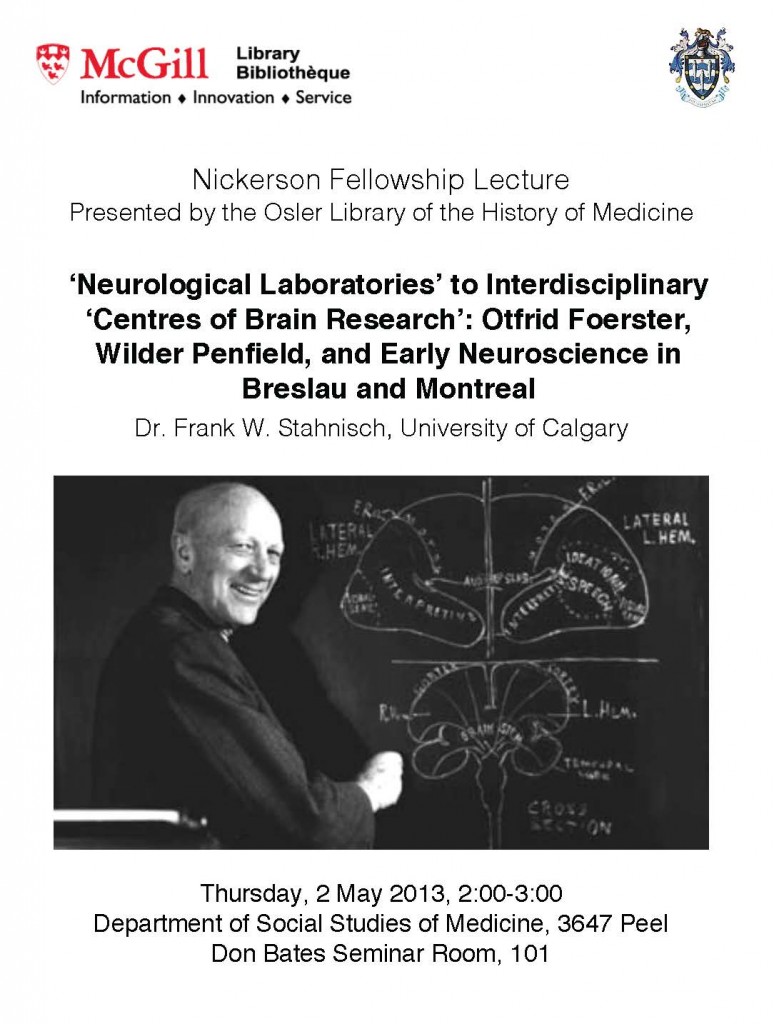
Abstract: Under specific consideration of the theoretical approaches and practical research influences of “interdisciplinarity” in neuroscientific research, this presentation (as the “Nickerson Fellowship Talk”) addresses a time period and a subject of investigation that has only marginally been dealt with in the history of medicine and neurosciences: the influences and the context of the creation of early centres of neuroscientific research at the beginning of the 20th century.
Breaking with the disciplinary set-up of “brain research” in the 19th century, prominent medical researchers such as Heinrich Obersteiner (Vienna), Otfrid Foerster (Breslau), Ludwig Edinger (Frankfurt), Emil Kraepelin (Munich), and Oskar Vogt (Berlin) helped to foster new trends in group-oriented neuroscientific activity. These approaches later served as major templates for such influential North American brain researchers as Wilder Penfield (Montreal), Harvey Cushing (Boston), and Francis O. Schmitt (St. Louis) and strongly reshaped the manner in which research investigations in the biomedical life sciences took place in the 20th century.
Yet so far, we do not have a sufficient historical understanding nor a philosophical explanation of what triggered these developments in the first place and how theoretical, methodological, and pragmatic factors played together in creating these new and fascinating forms of research organization. This presentation – by particularly focusing on Foerster’s Neurological Institute in Breslau and Penfield’s research visits in the 1920s and 1930s – intends to give some tentative answers as to the place, time, and culture in which these scientific and philosophical changes began to transform early neuroscientific research in Europe and North America.
Frank W. Stahnisch is an Associate Professor at the University of Calgary in Alberta, Canada. Since 2008, he holds the AMF/Hannah Professorship in the History of Medicine and Health Care at the UofC, and is cross-appointed in the Department of History (Faculty of Arts) and the Department of Community Health Sciences (Faculty of Medicine). He is also a full academic member of the Hotchkiss Brain Institute, the Institute for Public Health, as well as academic coordinator (History) of the Calgary History and Philosophy of Science undergraduate and graduate programs. Prior to joining the University of Calgary, he has held teaching positions at the Humboldt University of Berlin; the University of Erlangen-Nuernberg, and Johannes Gutenberg University of Mainz (Germany), and has also been a Visiting Professor at McGill University (Montréal), in Canada, the Max Planck Institute for the History of Science (Berlin) and the University of Heidelberg, in Germany.

